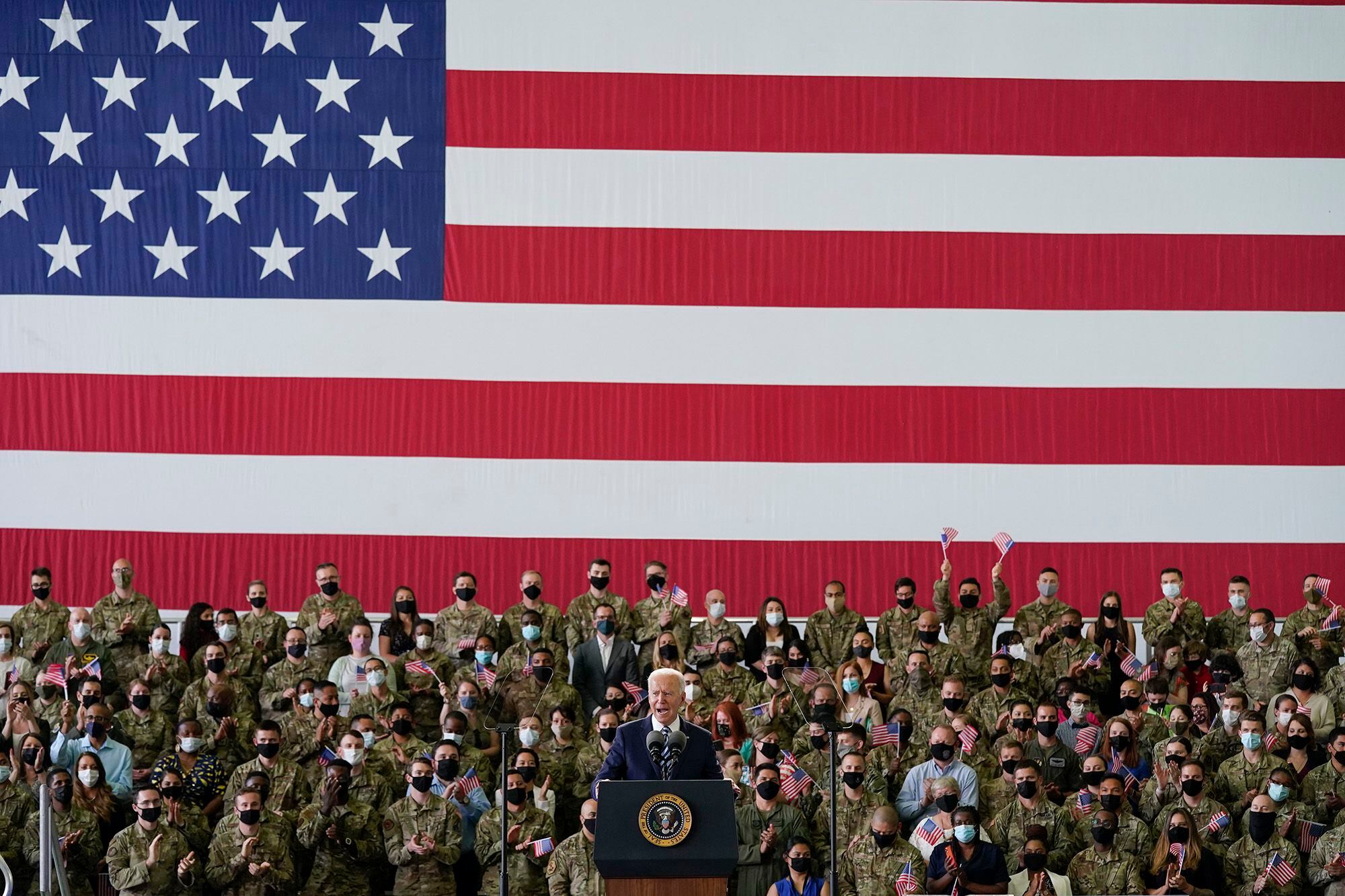 President
Joe Biden’s first priority upon taking office was to reassure U.S.
allies of America’s ongoing security commitments, promising that
President
Joe Biden’s first priority upon taking office was to reassure U.S.
allies of America’s ongoing security commitments, promising that
“America is back.” Despite some missteps along the way, that effort has paid off during the current standoff with Russia over Ukraine. But Biden still has a lot of work to do when it comes to shoring up America’s security partnerships to deal with a rising China.
|
|
In other areas, Biden was less eager to break with policies he inherited from Trump. On Afghanistan, for instance, he announced in April 2021 that he would follow through on the Trump administration’s deal to withdraw the final 2,500 U.S. troops that remained there, all but completing the drawdown by early August of the same year. The subsequent Taliban takeover of the country and chaotic final evacuation by the U.S. and its NATO allies from Kabul was a public humiliation for Biden.
It also left many European observers questioning the wisdom of relying so much on the U.S. for their own security, particularly those who argue in favor of enhancing Europe’s “strategic autonomy” in the face of a shift in Washington’s strategic focus to China. That sentiment was further reinforced soon after, with the surprise announcement of the AUKUS deal between the U.S., the U.K. and Australia, which, in causing the cancellation of Australia’s purchase of French submarines in favor of a U.S. offer, created a diplomatic incident with Paris. But Biden’s deft handling of the crisis over Ukraine, and his demonstrated commitment to European security in a moment of peril, has for now put those concerns to rest.
Nevertheless, Biden still has a lot of work to do to deepen and expand America’s security partnerships in the face of the greatest challenge to U.S. global leadership since the end of the Cold War: an increasingly assertive Chinese leadership under President Xi Jinping. Countering that challenge will require continuing to shore up ties with the United States’ Asian allies, while also seeking to solidify nascent partnerships with regional powers—particularly India, but also Vietnam. That won’t be easy, given their reluctance to antagonize China, which remains a principal trade partner for many.
How will Biden navigate the next phase of the West’s confrontation with Russia? Can he simultaneously ramp up the U.S. commitment to Europe’s security while also confronting the challenge represented by China? Can Biden succeed in deepening security partnerships in Asia without planting the seeds for a new Cold War with China?



 Trump’s
legacy also hung over Biden’s other early security moves, including
diplomatic reengagement with the regime in Iran. Trump’s maximum
pressure approach, which included abandoning the 2015 deal to curb
Iran’s nuclear program, backfired, as Tehran responded by expanding its
nuclear activities and assuming a more aggressive regional posture.
Biden initially sought to jumpstart multilateral diplomacy in an effort
to revive the nuclear deal. But talks made only halting progress and now
seem to be all but dead in the water, with reports suggesting that an
informal agreement to freeze the current status quo might take the
nuclear deal’s place.
Trump’s
legacy also hung over Biden’s other early security moves, including
diplomatic reengagement with the regime in Iran. Trump’s maximum
pressure approach, which included abandoning the 2015 deal to curb
Iran’s nuclear program, backfired, as Tehran responded by expanding its
nuclear activities and assuming a more aggressive regional posture.
Biden initially sought to jumpstart multilateral diplomacy in an effort
to revive the nuclear deal. But talks made only halting progress and now
seem to be all but dead in the water, with reports suggesting that an
informal agreement to freeze the current status quo might take the
nuclear deal’s place.

No comments:
Post a Comment
Note: Only a member of this blog may post a comment.